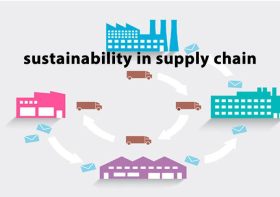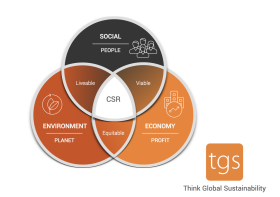Carbon Footprint Reduction Strategies

As our society becomes increasingly aware of the urgent need to address climate change, businesses and individuals alike are seeking effective strategies to reduce their carbon footprint. With the technology sector being a significant contributor to greenhouse gas emissions, it becomes crucial for tech companies and consumers to adopt sustainable practices. In this article, we will explore some innovative and impactful strategies that can help minimize the environmental impact of the tech industry.
1. Energy-efficient hardware
In the fast-paced world of technology, hardware devices continue to play a pivotal role. By opting for energy-efficient hardware, tech companies can significantly reduce their carbon footprint without compromising performance. Energy Star-certified devices, for example, consume less power when idle and in standby mode. Furthermore, employing power management software can further optimize energy consumption, ensuring that devices operate efficiently.
2. Cloud computing and virtualization
Transitioning to cloud-based services and virtualization technologies can significantly contribute to carbon footprint reduction. Data centers are notorious for their energy consumption and carbon emissions. However, cloud providers typically employ energy-efficient infrastructure, enabling businesses to reduce their energy consumption associated with physical servers considerably.
Virtualization, on the other hand, allows companies to maximize resource utilization by running multiple virtual machines on a single server. By consolidating hardware requirements, not only can energy consumption be reduced, but the overall carbon emissions of the business can be lowered.
3. Renewable energy sources
The tech industry heavily relies on electricity to power its operations. By adopting renewable energy sources to meet this demand, companies can significantly reduce their carbon footprint. Installing solar panels on office buildings, for instance, can provide access to clean and sustainable energy. Additionally, investing in wind energy or joining local renewable energy communities can also contribute to a greener future.
4. Telecommuting and remote work
The COVID-19 pandemic has proved that remote work is not only feasible but also highly advantageous. Allowing employees to work from home reduces the need for extensive office spaces and daily commutes. This leads to a substantial reduction in carbon emissions associated with transportation. By adopting remote work policies, tech companies can not only reduce their carbon footprint but also offer their employees a better work-life balance.
5. Product lifecycle management
One often overlooked aspect of carbon footprint reduction in the tech industry is product lifecycle management. Tech companies can contribute to sustainability by improving the durability and reparability of their products. Encouraging customers to opt for repairs and upgrades rather than disposing of electronic devices can significantly decrease electronic waste. Implementing recycling programs for electronic waste is also crucial to achieve a circular economy.
6. Smart and energy-efficient buildings
Technological advancements have allowed for the creation of smart buildings that significantly reduce energy consumption. Implementing automation systems for lighting, heating, and cooling can optimize energy use and reduce carbon emissions. Leveraging sensors and smart meters can help monitor and manage energy consumption more efficiently. Furthermore, utilizing energy-efficient designs during the construction phase can have long-term benefits.
7. Supply chain optimization and sustainable sourcing
Reducing carbon emissions in the tech industry demands a comprehensive approach that extends beyond the scope of individual companies. By optimizing supply chains and partnering with suppliers committed to sustainability, tech companies can contribute to reducing their overall carbon footprint. Emphasizing sustainable sourcing practices and encouraging suppliers to adopt environmentally-friendly methods can significantly impact carbon emissions throughout the entire production chain.
Conclusion
The tech industry plays a substantial role in contributing to climate change. However, by implementing carbon footprint reduction strategies, businesses and individuals within the tech niche can contribute significantly to a more sustainable future. Embracing technologies that prioritize energy efficiency, renewable energy sources, remote work, and sustainable sourcing can make a considerable difference. By adopting these strategies, we can ensure that the tech sector becomes a leader in combating climate change rather than a contributor.


